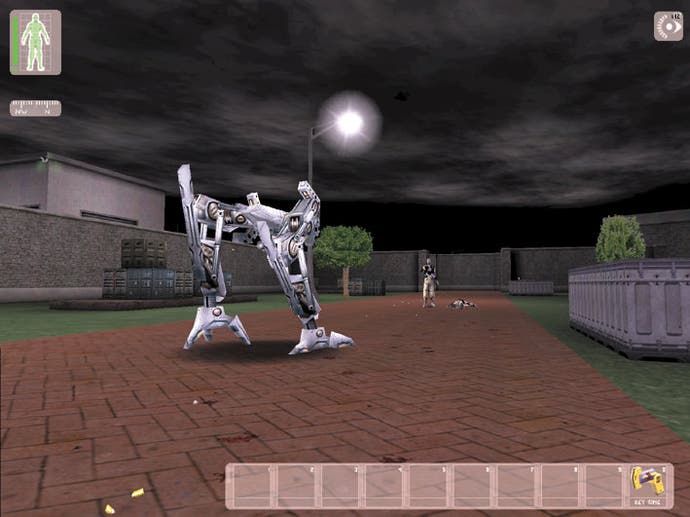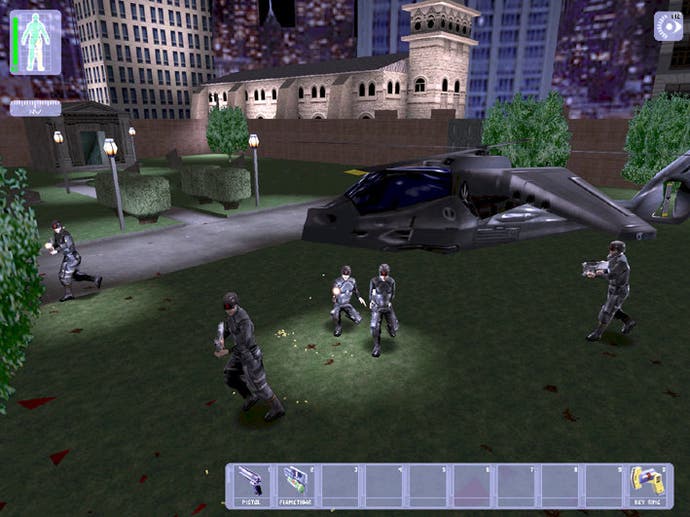Eurogamer Editors' Games of the Decade
Six of our Top Men (and a lady) pick a game they love and explain.
Rob Fahey (GamesIndustry.biz founder) - Deus Ex
You never forget your first 10.
In later years, I became more and more annoyed with the idea of 10/10 being "special". The phrase "perfect 10" makes me grind my teeth. 10 isn't perfection, it's just the best score we reviewers can award - the top of a scale that's frankly pretty arbitrary in the first place.
But Deus Ex was my first, for Eurogamer at least, and also one of the first the site had ever awarded - so it's probably unsurprising that there was debate, and argument, and soul-searching, and more debate, before I decided, in concert with the other writers and editors, to gently dab a number 10 on the end of the review. Still, from the moment it went live, with a sense of misplaced self-importance that my later self would find hilarious, I wondered if I'd made a terrible mistake.
With the benefit of almost a decade of hindsight, it turns out that Deus Ex was a bloody good place to start awarding 10s.

It's not, as such, that Deus Ex was a stunningly original game. On several occasions over the years, Eurogamer has stood accused of rewarding originality over quality. It's not a bad thing to be accused of and there's probably even some truth to it, but it's an urge I've always resisted. Sometimes, when the planets align, the best games are made up of old ideas simply executed better than ever before.
So yes, Deus Ex was a child of System Shock, and had its father's eyes and plenty more from that lineage besides. Yes, it tipped its cap to the likes of Metal Gear Solid, rifled through the wardrobe of The Matrix and held an illicit party in William Gibson's back yard. You can't point to a single element of Deus Ex and say, oh, that's new - but taken as a whole, this was a rare beast, a game whose familiar component parts came together perfectly, seamlessly, creating something far greater than their sum.
Countless words have been written about how Deus Ex worked - about the freedom and customisation granted by the augmentation system, the remarkably open level design which rewarded exploration and experimentation, the storyline which wove cyberpunk, conspiracy and urban mythology into a tale which would do Hollywood proud. A decade down the line, I don't have anything fresh to add to that analysis.
But what I can remember most clearly of all - what comes flooding back thanks to the handful of small change I paid for a new copy of the game last week - is how Deus Ex made me feel.
I didn't express it at the time, because with the foolishness of most young games writers, I thought that the technicalities and details of the game's systems were more important - but looking back, I didn't fight to give Deus Ex a 10 because it had an interesting upgrade and character progression system. I wanted to award this game the highest score I could because of something much more nebulous - because, fundamentally, it made me feel like I was dangerous.

Dropping down behind an enemy from a rooftop and killing them without a sound, stalking foes silently, killing swiftly and disappearing again into the shadows. Turning my enemies' own security systems against them, destroying them before they even saw me. Deus Ex turned the frantic videogame feeling of being pursued or attacked on its head. Instead I was the hunter, emerging from the shadows to take my prey. It was empowering, intoxicating.
That's what still stands out about Deus Ex today. It still empowers you, placing you at the controls of a character who instills terror in his foes - rather than asking you to be the lone gunman beset from all sides.
The wonderful level design, the beautifully balanced augmentations and upgrades - these are means to an end, not an end in themselves. 10 years later, I can see that it's not those individual systems that made Deus Ex great, but the moments when they worked together, cogs in a perfectly oiled machine, and the feelings they created for players in those moments.
For me, JC Denton eternally stands on the edge of a rooftop in Hell's Kitchen, watching his oblivious target, ready to pounce. 10 years later, that mental image still sends shivers down my spine - and I know that I should never have worried about awarding that score.
